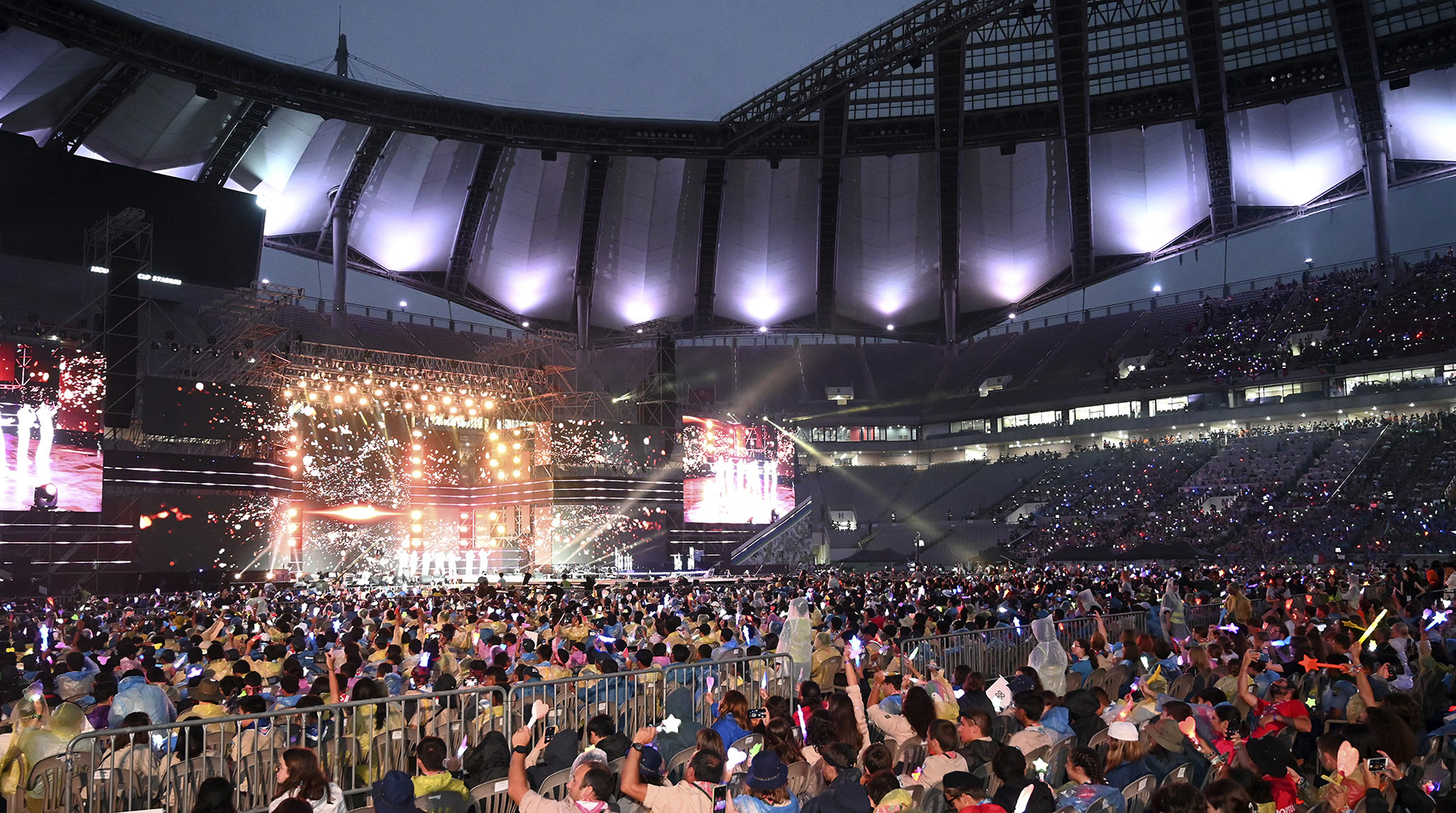
From Madison Square Garden in New York to Wembley Stadium in London, the biggest sports arenas and stadiums in major cities often double as concert venues.
But holding concerts at the Seoul World Cup Stadium is being challenged by some soccer fans complaining that nonsports events there have crucial detrimental effects on the field.
A self-proclaimed fan of soccer player Son Heung-min on Sept 11 posted a petition on the state-run e-People website, calling for the cancellation of K-pop superstar IU's concert slated for Sept 21-22 at the Seoul World Cup Stadium.
The petitioner claimed that the large crowd expected for the concert — which sold out 100,000 tickets within minutes — will damage the grass of the stadium that will be used for the qualifying matches of the upcoming 2026 FIFA World Cup.
READ MORE: Health problems long plague overloaded K-pop girl groups
After playing Palestine on its home field on Sept 5, South Korea will host the rest of its Group B opponents in the qualifiers slated until next year. But there have been multiple complaints from players, fans and even opposing teams about the poor conditions of the grass.
"A third-round qualifying match between South Korea and Iraq is slated in Sangam (also known as the Seoul World Cup Stadium) on Oct 15, and (the authorities) should try their best to manage the grass there for the remainder of (the World Cup qualifiers) period," the petitioner wrote.
The person cited the Seoul Metropolitan Government Ordinance on the Installation and Operation of Metropolitan Sports Facilities, which in Article 5-3 states that the mayor may bar or even cancel the use of a sports facility if an event is deemed as possibly causing a hindrance to the management of the facility in question.
Greener grass
The controversy started when South Korean team captain Son Heung-min — who led his players' 3-1 road win over Oman with a go-ahead goal in the second half — complained about the grass in the Seoul World Cup Stadium. He said the Sultan Qaboos Sports Complex's field being in good condition allowed him to play with more confidence, adding that he wishes such good management could be applied to South Korea's home fields as well.
After his team ended in a goalless draw against Palestine in Seoul, he claimed the grass had made it difficult to control the ball.
The allegedly questionable grass conditions at the Seoul World Cup Stadium have long been an issue. Former South Korean team player Ki Sung-yueng in 2017 jokingly said that he was not worried about a road match in China, because the grass there "could not possibly be worse than in Seoul".
In light of the concerns over grass, Seoul Facilities Corporation in October 2021 installed new turf comprised of 95 percent natural and 5 percent synthetic grass. Fewer events were held at the stadium since then compared to before, with the venue being concert-free for a full year since the new field was installed.
ALSO READ: K-pop group NMIXX break fresh ground, tease new music
But between the ongoing remodeling of the Seoul Olympic Stadium in Jamsil, southern Seoul, and the Gocheok Sky Dome being occupied for the professional baseball league season, the Seoul World Cup Stadium has become virtually the only venue in Seoul to hold mega-sized concerts. The concerts of band Seventeen and singer Lim Young-woong were held in the stadium, each in April and May of this year, before the recent concert.
Operators of the Seoul World Cup Stadium told local media that warnings about the grass are notified to whoever rents the stadium, and those who rent it are mandated to restore any damages to the field. Grass access is also limited to the minimum number of personnel required to install the stage and conduct the events, they added.
The performers themselves also make efforts to minimize damage to the grass, such as Lim not installing seats on the field. IU's agency also vowed to follow the policies by protecting the grass, disassembling the stage as soon as the concert ends while keeping the grass hydrated and well-ventilated during the event.


